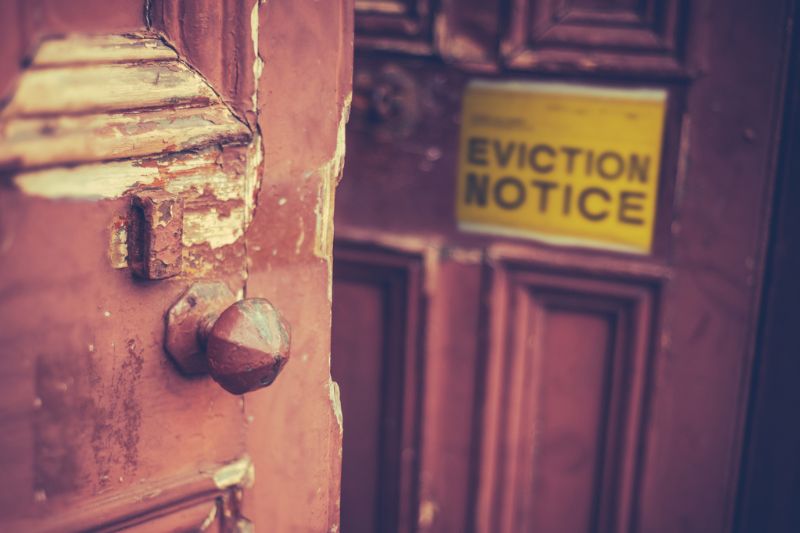In the opening of his 1953 novel The Go-Between, novelist L.P. Hartley wrote, ‘The past is a foreign country: they do things differently there.’ The same applies to a significant section of our own country in the present day. Certainly, many Australians are comfortable and secure, despite high mortgage rates and rents, and the rising cost of household essentials such as food, energy bills and petrol prices.

But there exists, largely hidden, a second Australia. A very different domain of more than three million people, some 761,000 of them children, for whom interest rates count little because they don’t hold a mortgage, let alone several to cover investment properties. In the main, fuel prices aren’t relevant either, because they can’t afford to own a car.
Especially tragic is the large number of children amongst these ‘have nots’, to use a term I wish was outdated, whose present wellbeing and future prospects, including their physical and emotional wellbeing, and educational opportunities, are seriously compromised through living in impoverished households.
This year’s Anti-Poverty Week (15-27 October) focuses on children, given their utter dependency on Australia’s underfunded welfare system. Impoverished Australians must make a complexity of decisions every day, not only about what food to buy, but how many meals they can actually afford. This might mean skipping breakfast so the kids can take a packed lunch to school. Or so mum or dad can eat at work, because around one-in-four Australians receiving JobSeeker are employed, although often in casual or ‘gig’ jobs that are underpaid and insecure, with few rights or protections.
Being poor means endless trade-offs. It might mean not heating the house in order to save the money needed for a child’s school excursion, because missing out would risk being stigmatised by classmates. Or medical bills. Or that unavoidable necessity the rent, for to skip that can mean jeopardising the home itself and running the risk of everyone becoming homeless.
Citizens of this second Australia are conspicuous in the ABS census figures but almost invisible to most of us. Yet their faces and circumstances are well known to charities such as St Vincent de Paul Society, as our members pay regular home visits, or meet them at food vans, and hear their stories and assist where we can. In addition, the Society provides around $50 million in emergency response support each year.
They are single parents, young people, First Nations people, long-term unemployed and those living with disability or ill-health. All are particularly vulnerable. What they have in common is relying on inadequate social security for income and struggling to maintain an affordable roof over their heads.
'If the test of a fair society is measured by how it treats those living in poverty or who are marginalised, then Australia — regarded as one of the world’s richest countries — is failing. A robust safety net is needed, with social equity built into our economy.'
Catholic Social Teaching principles are based on cherishing human dignity, solidarity with the needy, and advancing the common good. The final goal is that all members of our society can flourish to their fullest potential. The aim is to create a more just and equitable society by advocating for vulnerable people.
These are the values of Society founders who, two centuries ago in France, showed courageous advocacy on behalf of the vulnerable, the powerless and the many others who needed not just a loaf of bread, but equality under the law.
The latest paper in our suite of advocacy policies grouped under the Let’s Build a Fairer Australia banner focuses on ‘Income Support, Poverty and Debt — why Australia needs proper safety nets’. It welcomes certain Government reforms, such as the establishment of an independent Economic Inclusion Advisory Panel led by the Treasurer and Minister for Social Services and comprising experts to advise on income support payments.
However, a range of reforms need to be made urgently. These include a further increase to the base rate of working age payments to lift recipients out of poverty; income support payments to be indexed biannually in line with wage growth or CPI, whichever is higher; an increase to the earnings threshold of income support recipients by $150 a fortnight (to $300); a broader assessment process for the Disability Support Payment.
Regulating the Buy Now Pay Later (BNPL) sector is also a priority. BNPL accounts now total $11.9 billion, often being used on top of existing debts by people in financial difficulty.
Most particularly, we support Anti-Poverty Week’s call for child poverty to be halved by 2030. Growing up in poverty is a strong predictor of a child being developmentally vulnerable by the time they start school. The Productivity Commission found that school children experiencing disadvantage are three times more likely to fall behind than other students.
The question often posed is how we can afford a fairer Australia. The answer lies in policy priorities, as detailed in the report A Fairer Tax and Welfare System that we commissioned from the ANU (covered recently in Eureka Street).
This research showed that the most pressing welfare reforms could be funded by repealing the stage 3 tax cuts, making moderate changes to personal income taxation thresholds, reducing the capital gains tax discount and changing superannuation tax concessions. These changes would reduce the after-housing poverty rate from 11.7 per cent of households to 8.6 per cent, lifting between 193,000 to 834,000 people out of poverty.
If the test of a fair society is measured by how it treats those living in poverty or who are marginalised, then Australia — regarded as one of the world’s richest countries — is failing. A robust safety net is needed, with social equity built into our economy.
Mark Gaetani is National President of the St Vincent de Paul Society.
Main image: (Getty images)